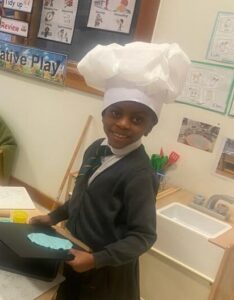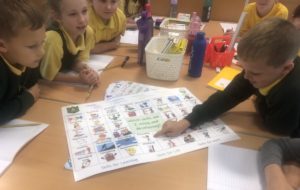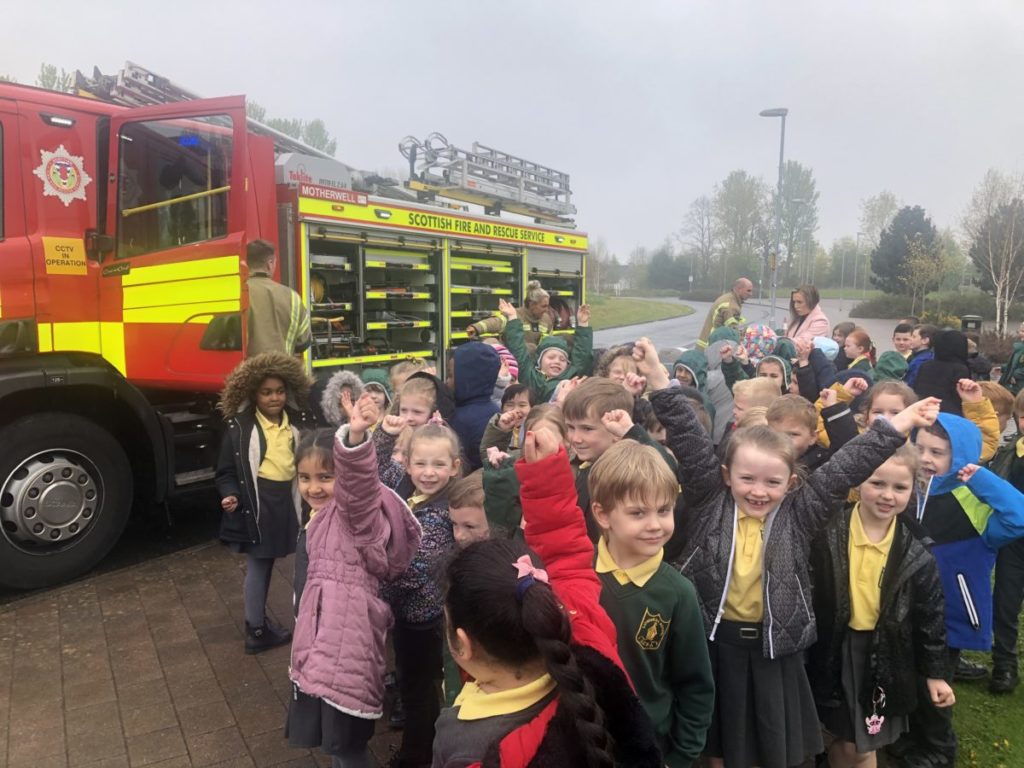
 You are a Cathedral pupil just now but one day you’ll be in the world of work using many of the skills you started learning right here in Cathedral Primary.
You are a Cathedral pupil just now but one day you’ll be in the world of work using many of the skills you started learning right here in Cathedral Primary.
When Mr Young was at primary school, there were no computers in classrooms, there was no such thing as the internet, mobile phones hadn’t been invented and there were only THREE channels on the television (BBC1, BBC2 and ITV)! We live in a fast-changing world, with new things being invented every day. By the time most of you are old enough to get a driving licence, it’s likely there will be driverless cars taking people around the streets of Motherwell!
Have you thought about what you would like to be or do when you’re older? Some of you may have already decided you’d like to be a policeman, a lorry driver, a doctor or perhaps a chef. However, there will be jobs in the year 2040 which don’t even exist just now. That’s why the way we teach and learn in Cathedral Primary helps you develop skills for learning, skills for life and skills for work… skills which you’ll be able to use in whatever job you choose to do in the future. Next time you look at your skills mat, have a think about which jobs and careers require that skill and how you might use it in your future life.
decided you’d like to be a policeman, a lorry driver, a doctor or perhaps a chef. However, there will be jobs in the year 2040 which don’t even exist just now. That’s why the way we teach and learn in Cathedral Primary helps you develop skills for learning, skills for life and skills for work… skills which you’ll be able to use in whatever job you choose to do in the future. Next time you look at your skills mat, have a think about which jobs and careers require that skill and how you might use it in your future life.
Cathedral Primary has its very own whole-school Developing the Young Workforce (DYW) programme which helps you learn about and prepare for the world of work.
By the end of Primary 1, you’ll be able to say:
- I can communicate with people about the different jobs they do in my community.
- I can discuss some of the rewards that a job brings.
- I believe I can do any job.
- I can role play different job roles.
- I can follow rules and routines and explain why they are important.
- I can talk about my learning, my strengths and my next steps.
- I can develop ideas and take part in projects to make things.
By the end of Primary 4, you’ll be able to say:
- I can describe different jobs in my community and some of the skills needed for these.
- I can learn about the world of work from visits, projects and my experiences.
- I can talk to employers about myself and about their workplace.
- I can recognise that there are different ways to get a job.
- I can talk about the types of jobs that interest me.
- I believe I can succeed in any area of work.
- I can talk about my strengths, interests and skills and show evidence of my progress.
- I can set goals and work towards achieving them.
- I can adopt different roles when running a business.
By the end of Primary 7, you’ll be able to say:
- I can discuss the relevance of skills to the wider world and make connections between skills and the world of work.
- I can explain to others my ambitions/what I would like to do and look for ways to achieve them/that.
- I can recognise the skills I have and need for work.
- I can apply my skills to get more information about jobs/careers.
- I can use online tools available to me.
- I own and can manage my profile and can use it to help me discuss my interests, strengths and skills with my parents/carers and others.
- I can identify people in my network who help me broaden my horizons.
- I believe I can maximise my potential in any type of work.
- I can identify different types of enterprise opportunities and engage in them.


